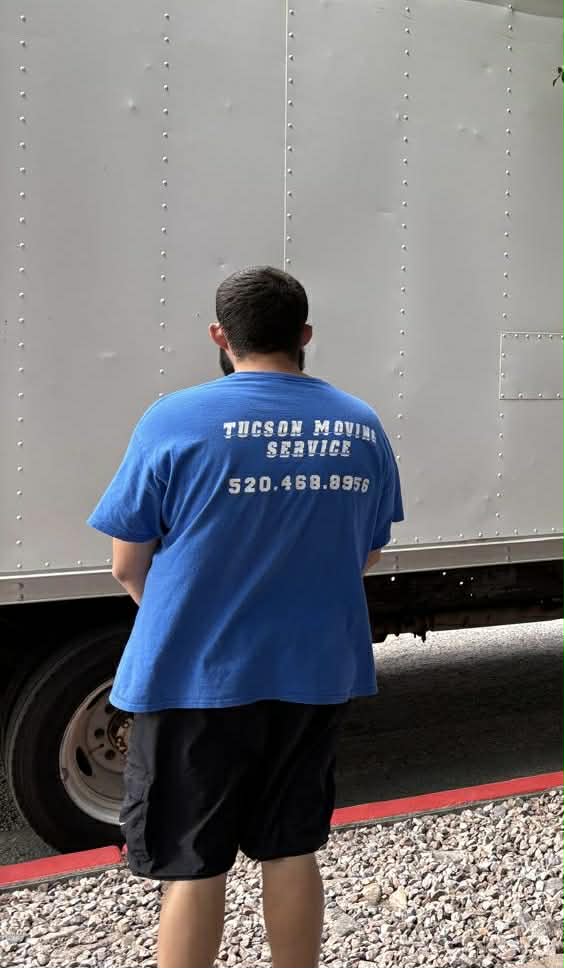Moving to a new home represents one of life’s most significant transitions, and protecting your belongings during this process should be a top priority. Whether you’re relocating across Tucson or making a long-distance move from the desert Southwest to another state, understanding moving insurance options can save you from potential financial headaches down the road.
The moving industry operates under specific regulations and liability standards that may not provide the comprehensive protection you expect. Many homeowners assume their personal property insurance automatically covers items during transit, but this assumption often leads to unpleasant surprises when damage occurs. Understanding the various types of coverage available and their limitations will help you make an informed decision about protecting your household goods.
Understanding Basic Moving Company Liability
Federal regulations require moving companies to offer basic liability coverage, but this protection falls far short of full replacement value. Standard liability coverage, known as Released Value Protection, provides minimal compensation based on weight rather than actual value. Under this basic coverage, you receive compensation of just 60 cents per pound per item, regardless of the item’s true worth.
Consider how inadequate this protection becomes when applied to valuable electronics, furniture, or personal items. A damaged 50-inch television weighing 40 pounds would only warrant $24 in compensation under basic liability, despite potentially costing over $1,000 to replace. Similarly, a solid wood dining table weighing 80 pounds would receive just $48 in compensation, even if its replacement value exceeds $2,000.
This weight-based calculation system creates significant gaps in protection for lightweight but valuable items. Jewelry, artwork, important documents, and electronic devices often carry high value relative to their weight, making basic liability coverage particularly insufficient for these belongings. Professional movers are required by law to offer this basic protection at no additional charge, but wise consumers recognize its limitations and explore additional coverage options.
Full Value Protection Options
Full Value Protection represents the most comprehensive coverage available through moving companies, offering replacement cost coverage for damaged or lost items. Under this protection level, the moving company assumes liability for the replacement value of lost or damaged goods, providing significantly better coverage than basic liability options.
When you select Full Value Protection, the moving company must either repair the damaged item to its original condition, replace it with an item of like kind and quality, or provide cash compensation equal to the current replacement value. This coverage typically costs between 1% and 2% of your shipment’s declared value, making it a relatively affordable upgrade considering the enhanced protection it provides.
However, Full Value Protection comes with important limitations and exclusions. Items of extraordinary value, such as jewelry worth more than $100 per pound, artwork, antiques, and collectibles, may require special handling and additional documentation. The moving company may request professional appraisals for high-value items to establish their worth before transport.
Certain types of damage may not qualify for full compensation under this coverage. Normal wear and tear, damage resulting from natural disasters, and issues arising from inadequate packing by the customer typically fall outside the scope of Full Value Protection. Additionally, some moving companies impose deductibles ranging from $250 to $1,000, reducing the compensation you receive for smaller claims.
Third-Party Moving Insurance Alternatives
Independent insurance companies offer moving insurance policies that often provide broader coverage than options available through moving companies. These third-party policies frequently cover scenarios excluded from traditional moving company protection, including damage from natural disasters, theft during storage, and losses occurring during extended transit periods.
Third-party moving insurance typically operates on an actual cash value or replacement cost basis, similar to homeowners insurance. Many policies include coverage for additional living expenses if your belongings are delayed, helping offset hotel costs and other temporary accommodations. Some providers offer coverage for plants, perishable items, and other belongings that moving companies typically exclude from their protection plans.
The claims process with third-party insurers often provides more flexibility than dealing directly with moving companies. Independent adjusters evaluate claims impartially, without potential conflicts of interest that may arise when the moving company handles both transport and claims processing. However, third-party policies usually require prompt notification of damage and may involve more complex documentation requirements than moving company coverage.
Premium costs for third-party moving insurance vary based on shipment value, distance, and coverage options selected. Many policies offer customizable deductibles and coverage limits, allowing you to tailor protection to your specific needs and budget constraints.
Homeowners and Renters Insurance Considerations
Your existing homeowners or renters insurance may provide some protection for belongings during a move, but coverage varies significantly among policies and insurers. Most standard policies include limited coverage for personal property in transit, typically ranging from 10% to 20% of your total personal property coverage limit.
This coverage usually applies only to specific circumstances, such as theft from a moving truck or damage during loading and unloading. Many policies exclude coverage for damage occurring during normal transport, leaving significant gaps in protection. Additionally, your policy’s deductible applies to moving-related claims, potentially making small to moderate losses financially impractical to claim.
Some homeowners policies offer optional endorsements or riders that extend coverage during moves. These additions typically cost between $50 and $200 but may provide broader protection than standard policy language. Before relying on homeowners or renters insurance for moving protection, contact your insurance agent to review your specific policy terms and limitations.
High-value items like jewelry, art, and collectibles often require separate scheduled coverage under homeowners policies. If you maintain scheduled coverage for these items, verify whether protection continues during the moving process and understand any notification requirements your insurer may impose.
Factors Influencing Your Insurance Decision
Several key factors should guide your decision about moving insurance coverage. The total value of your household goods represents the primary consideration, as higher-value shipments justify more comprehensive protection. Create a detailed inventory of your belongings, including photographs and estimated replacement costs, to accurately assess your protection needs.
The distance and complexity of your move also influence insurance requirements. Local moves within Tucson may involve less risk than long-distance relocations requiring multiple handling stages and extended transit times. Cross-country moves face increased exposure to weather delays, route changes, and potential complications that increase the likelihood of damage or loss.
Consider the age and condition of your belongings when evaluating insurance needs. Newer furniture and electronics typically warrant full replacement value protection, while older items may not justify comprehensive coverage costs. However, sentimental value and replacement difficulty should factor into your decision-making process beyond pure financial calculations.
Your personal risk tolerance and financial situation play crucial roles in insurance selection. If replacing damaged belongings would create significant financial hardship, investing in comprehensive coverage provides valuable peace of mind. Conversely, if you maintain adequate emergency funds and own primarily replaceable items, basic coverage might suffice for your situation.
Special Considerations for High-Value Items
Valuable items require special attention during the moving process, regardless of your insurance coverage selection. Jewelry, artwork, antiques, collectibles, and important documents often exceed standard coverage limitations and may require specialized handling arrangements.
Consider transporting irreplaceable items personally rather than including them in your household goods shipment. Important documents, family heirlooms, and sentimental items that cannot be replaced should travel with you whenever possible. For items that must be professionally moved, obtain separate appraisals and consider specialized shipping services designed for high-value goods.
Many moving companies offer white glove services for valuable items, including custom crating, specialized handling procedures, and enhanced tracking systems. These services cost more than standard moving options but provide superior protection for irreplaceable belongings. Professional art handlers and antique movers specialize in transporting fragile and valuable items, offering expertise that general moving companies may lack.
Photography and detailed documentation become especially important for high-value items. Create comprehensive records showing the condition of valuable pieces before the move, including close-up images of any existing damage or wear. This documentation proves invaluable if insurance claims become necessary and helps establish pre-existing conditions.
Making the Right Choice for Your Tucson Move
Selecting appropriate moving insurance requires careful analysis of your specific circumstances and risk factors. Start by creating a comprehensive inventory of your household goods, including estimated replacement values for major items. This inventory serves multiple purposes, helping you determine appropriate coverage levels while providing essential documentation for potential insurance claims.
Research the reputation and claims handling procedures of potential moving companies and insurance providers. Read customer reviews focusing on claims experiences rather than just moving services. A company’s response to damage claims reveals much about their commitment to customer satisfaction and professional integrity.
Tucson Moving Service understands the importance of protecting your belongings during relocation and can help explain the various insurance options available for your specific move. Professional moving companies should provide clear explanations of coverage options, costs, and limitations without pressuring you toward any particular choice.
Obtain written quotes for all insurance options under consideration, including detailed explanations of coverage terms, exclusions, and deductible requirements. Compare costs not just on premium amounts but on the actual protection provided, considering factors like deductible amounts, coverage limits, and claims handling procedures.
The decision about moving insurance ultimately depends on balancing protection costs against potential losses and your personal comfort level with risk. While no insurance policy can replace items with sentimental value, appropriate coverage can provide financial protection and peace of mind during an already stressful time.
Remember that the cheapest insurance option may not provide adequate protection, while the most expensive coverage may include unnecessary features for your specific situation. Focus on finding coverage that matches your actual needs and provides reasonable protection for your household goods at a cost that fits your moving budget.
Taking Action Before Your Move
Schedule discussions about insurance options early in your moving planning process, well before your scheduled moving date. Last-minute decisions about coverage often result in inadequate protection or unnecessarily expensive options chosen under time pressure.
For comprehensive guidance on protecting your belongings during your upcoming relocation, consult with experienced professionals who understand the complexities of moving insurance and can recommend appropriate coverage for your specific circumstances. The Federal Motor Carrier Safety Administration provides additional resources about your rights and responsibilities when moving interstate.
Taking time to understand your insurance options and select appropriate coverage protects both your financial interests and peace of mind during your move. Whether you choose basic liability, full value protection, or third-party insurance, make an informed decision based on your specific needs and circumstances rather than simply accepting the cheapest available option.



